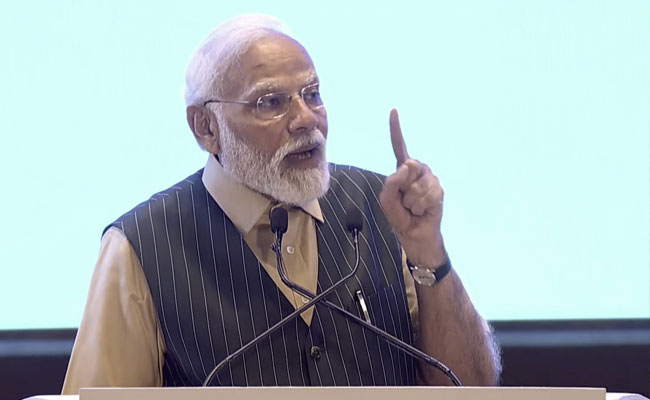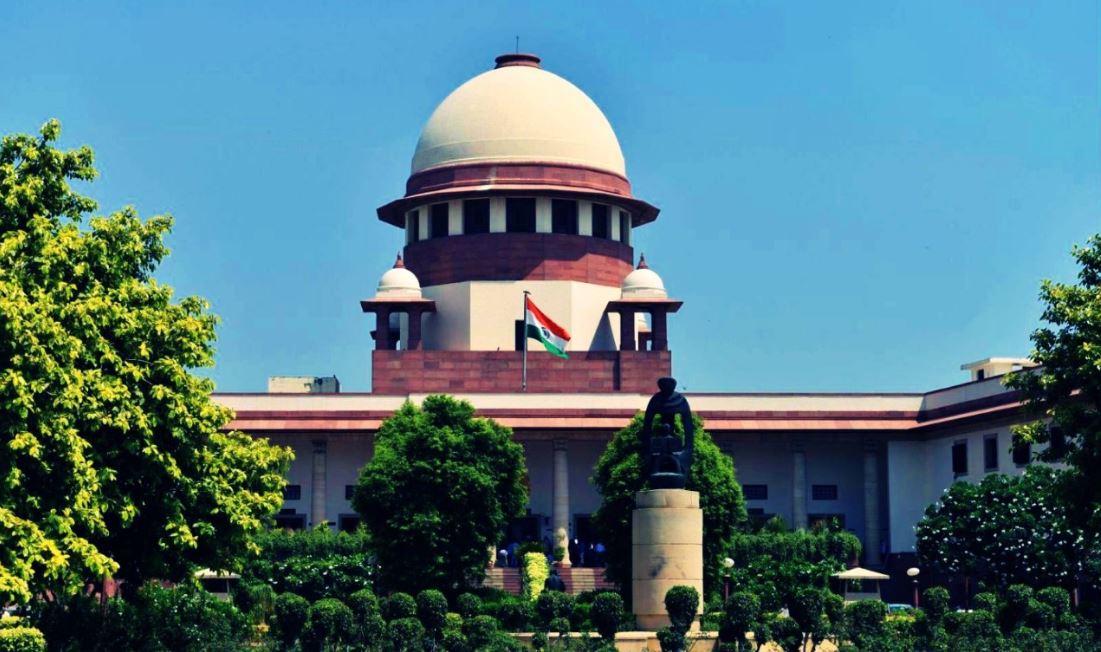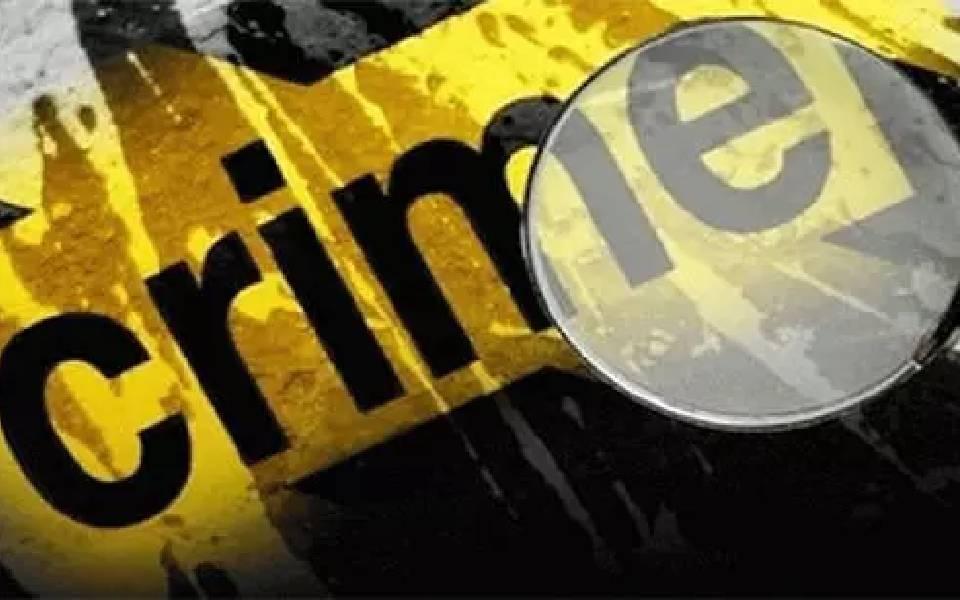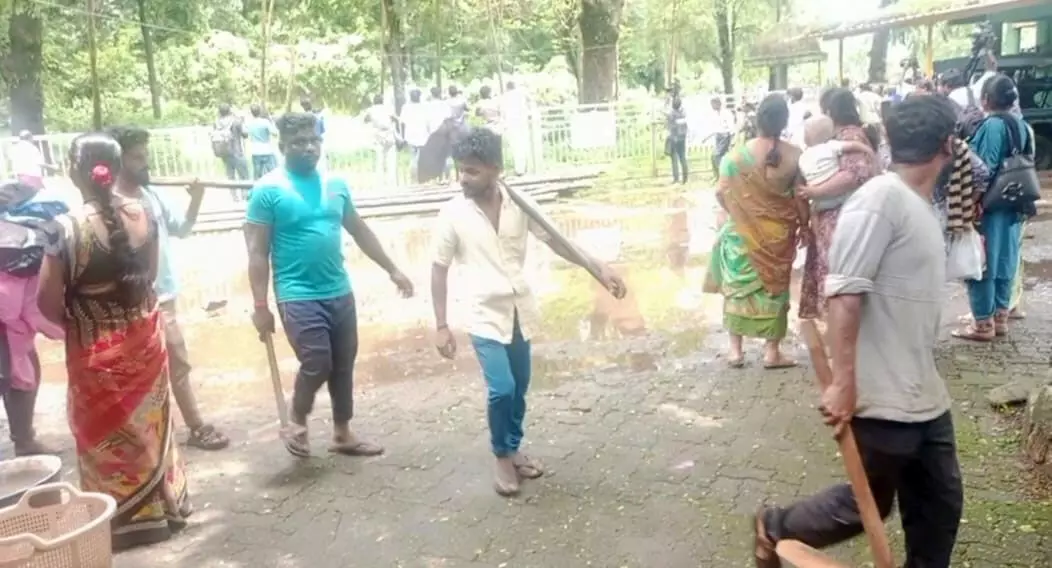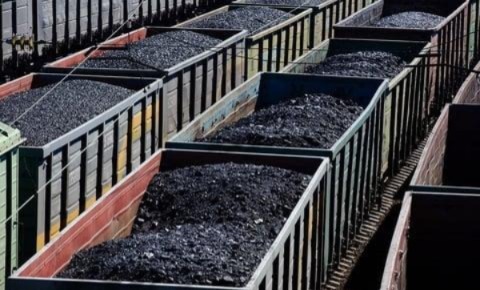New Delhi (PTI): The new National Education Policy (NEP) will give due respect and credit to every language in the country and those who try to politicise language for their selfish interests will have to shut their shops, Prime Minister Narendra Modi said on Saturday.
Delivering the inaugural address at the "Akhil Bhartiya Shiksha Samagam" on the third anniversary of the launch of the NEP, Modi said the biggest injustice to students is judging them on the basis of their language, instead of their capabilities.
"The National Educational Policy will give due respect and credit to every language in the country.... Those who try to politicise language for their selfish interests will now have to shut their shops," the prime minister said.
"Education in the mother tongue is initiating a new form of justice for students in India. It is also a very significant step towards social justice," he added.
Taking note of the multitude of languages in the world and their importance, the prime minister underlined that several developed countries have got an edge owing to their local languages.
Giving the example of Europe, he said most countries make use of their own native languages. Modi lamented that even though India has an array of established languages, they are presented as a sign of backwardness and those who cannot speak English are neglected and their talent is not recognised.
"As a result, children in the rural areas remain the most affected. The country has now begun to shun this belief with the advent of the NEP. Even at the United Nations, I speak in an Indian language," he added.
Modi underlined that subjects ranging from social science to engineering will now be taught in Indian languages. "When the students are confident in a language, their skills and talent will emerge without any restrictions," he said.
The prime minister said the world is looking at India as a nursery of new possibilities and several countries are approaching the government for setting up Indian Institute of Technology (IIT) campuses there.
"The world is looking at India as a nursery of new possibilities. Many countries are approaching us to open IIT campuses there. Two IIT campuses -- one in Tanzania and one in Abu Dhabi -- are already about to start operations.... Various global universities are also reaching out to us, expressing their interest in setting up campuses in India," he said.
Modi said the NEP aims at making India a hub of research and innovation and has given equal importance to traditional knowledge systems and futuristic technology.
He also asked schools to make students aware of subjects such as disaster management, climate change and clean energy.
During the programme, the prime minister released the first instalment of funds under the PM SHRI scheme.
The schools under the scheme will nurture students in a way that they become engaged, productive and contributing citizens for building an equitable, inclusive and pluralistic society, as envisaged under the NEP.
The prime minister also released education and skill curriculum books translated into 12 Indian languages.
The two-day Akhil Bhartiya Shiksha Samagam is being held at Bharat Mandapam at the old Pragati Maidan here.
Let the Truth be known. If you read VB and like VB, please be a VB Supporter and Help us deliver the Truth to one and all.
New Delhi (PTI): The Supreme Court on Tuesday issued contempt notices to a litigant and his lawyers for making "scurrilous allegations" against a sitting judge of the Telangana High Court in their plea.
The top court, while issuing the show cause notices to the petitioner and his lawyers, refused to allow withdrawal of the petition, and said, “We cannot permit judges to be out in a box and allow any litigant to make such allegations against a judge. Here we were trying to protect lawyers.”
A bench comprising Chief Justice B R Gavai and Justice K Vinod Chandran was hearing a transfer plea filed by petitioner N Peddi Raju filed through advocate-on-record Ritesh Patil.
The petition involved a case in which Telangana Chief Minister A. Revanth Reddy had received relief from a high court in a matter under the Scheduled Castes and Scheduled Tribes (Prevention of Atrocities) Act.
“Here we were trying to protect lawyers, but this kind of conduct cannot be condoned,” the bench, which earlier heard another suo motu case pertaining to summoning of lawyers by the ED for rendering legal advice, said.
“Scurrilous allegations have been made against the sitting judge of Telangana High Court. It has been held (in a judgement) that it is not only a litigant but also a lawyer who signs (the petition) is guilty of contempt of court.
“We thus issue notice to Peddi Raju as well as the lawyers … and the AoR. They are directed to state why contempt should not be initiated against them. Notice returnable on August 11,” the CJI said.
A counsel sought the liberty to withdraw the remarks after the court expressed strong displeasure. However, the bench dismissed the request.
“File apology …we will see whether to consider or not. We will see the apology is genuine or not. When we expressed displeasure at the language, liberty was sought to withdraw. We dismissed the request,” the bench said.
The case stems from the Telangana High Court's decision to quash a criminal case registered against the chief minister under the SC/ST Act.
The petitioner later approached the top court with a transfer plea, alleging bias and impropriety on the part of the high court judge.
Senior advocate Sidharth Luthra appeared on behalf of the chief minister.

